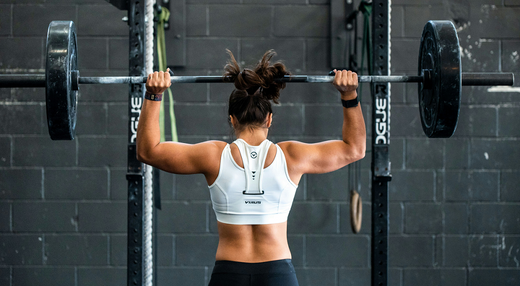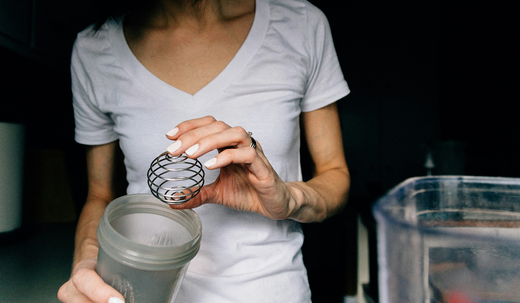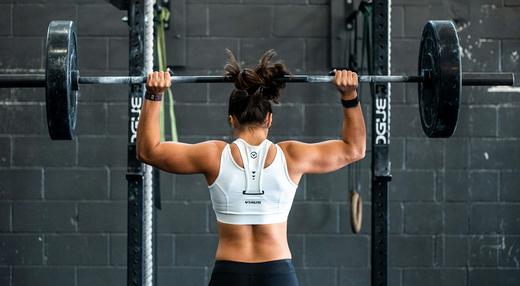
When Is the Best Time to Workout?
Share
When Is the Best Time to Work Out? A Scientific Exploration
Many fitness enthusiasts, gym-goers, and casual exercisers often wonder: When is the best time to work out? Is there an optimal time of day that yields the best results for building strength, losing weight, or improving cardiovascular health? While personal preferences, schedules, and lifestyle factors play a significant role, there is growing evidence that suggests certain times of day might offer specific advantages for different types of workouts. In this article, we explore the science behind workout timing, examining the physiological, hormonal, and psychological factors that influence exercise performance throughout the day.
The Body’s Natural Rhythms: The Circadian Cycle
The body operates on a circadian rhythm, a 24-hour internal clock that regulates sleep, wakefulness, hormone production, and other physiological processes. This rhythm is influenced by external cues, such as light and temperature, and affects everything from alertness to muscle function. Understanding how your body’s natural cycles interact with exercise can help you determine the most effective time to train. Research suggests that performance fluctuates at different times of the day, largely due to variations in body temperature, hormone levels, and energy availability. Let’s explore these factors in greater detail.
Morning Workouts: Advantages and Considerations
For many people, exercising in the morning fits best into their schedules. But beyond convenience, there are several physiological reasons why a morning workout may be beneficial.
1. Hormonal Advantage In the early morning, levels of cortisol (a hormone that helps mobilize energy) are higher. This can give you a natural boost of energy and focus. While cortisol is often associated with stress, it plays a key role in preparing the body for physical exertion. In particular, morning workouts have been shown to enhance fat oxidation, which may help with fat loss. Additionally, testosterone levels tend to be higher in the morning, particularly in men. Testosterone plays a crucial role in muscle growth and strength, making morning workouts potentially more effective for building lean muscle mass.
2. Improved Fat Loss
A study published in the British Journal of Nutrition found that exercising in a fasted state (i.e., before breakfast) increases fat oxidation and may be more effective for fat loss compared to exercising after eating. This is partly due to the body’s reliance on stored fat for energy when glycogen (the carbohydrate stores) is low in the morning.
3. Consistency and Mental Health
Morning workouts are often easier to stick to long-term because they leave less room for distraction or schedule conflicts. Early exercise has also been linked to improved mood and reduced stress levels throughout the day, potentially due to the release of endorphins. A consistent morning routine can also promote better sleep patterns, further improving overall health.
However, one downside of morning workouts is that muscle stiffness can be an issue. After a night's rest, the body is not as warm, and joints and muscles may be less flexible. A proper warm-up is crucial to prevent injury and to perform at your best.
Afternoon Workouts: The Goldilocks Zone?
For many people, midday or afternoon workouts are a sweet spot. The body is fully awake, body temperature has risen, and energy levels are typically more stable compared to the groggy mornings or late-night hours.
1. Peak Performance
A study published in the Journal of Sports Science and Medicine suggests that the body’s muscle strength, endurance, and reaction time peak in the afternoon (around 2-6 PM), likely due to the body's internal clock. Muscle temperature is higher, which improves muscle elasticity and strength. This may reduce the risk of injury and increase performance, especially for activities requiring coordination, agility, or maximal strength.
2. Better Exercise Efficiency
In the afternoon, the body’s core temperature tends to be at its highest, which can increase muscle efficiency and cardiovascular output. This may help you exercise more efficiently and effectively, with less perceived effort for the same level of intensity.
3. Stress Relief
Exercise in the afternoon can serve as a great outlet for stress accumulated throughout the day. For many, a workout after work can help clear the mind and improve mood, promoting a sense of accomplishment and well-being.
However, the biggest drawback for many is scheduling conflicts, as the afternoon is when most people have busy work or family obligations. Still, for those who can fit it in, an afternoon workout might offer an optimal balance of energy and performance.
Evening Workouts: The Night Owl's Advantage
For those who identify as night owls, working out in the evening or late at night might feel more natural. But does the body respond well to exercise at this time? The research here is more mixed, with both potential benefits and drawbacks.
1. Strength and Power
Evening workouts (typically 6-9 PM) are often associated with peak strength and power. Studies show that muscle function tends to be at its highest during the evening hours due to elevated core body temperature and peak hormone levels, including growth hormone and testosterone. This makes evening workouts a good time for strength training, weightlifting, and high-intensity interval training (HIIT).
2. Improved Focus and Reduced Fatigue
For those who feel more alert and energized in the evening, working out can be an effective way to channel excess energy. The mental clarity and focus of evening workouts might even lead to better performance in endurance-based activities, such as running or cycling.
3. Sleep Quality Concerns
The major concern with evening exercise is its potential effect on sleep quality. Intense exercise, particularly within 1-2 hours of bedtime, can elevate heart rate and adrenaline levels, which might make it harder to fall asleep. However, this effect is less pronounced for moderate-intensity workouts or exercises that are not overly stimulating (such as yoga or light stretching). If you are sensitive to nighttime workouts, it may be worth experimenting with timing to see what works best for your sleep.
Enhance Your Workout Routine with KickForce
Regardless of the time you choose to exercise, staying hydrated and fueling your body effectively is key to success. The KickForce Protein Shaker Bottle is an excellent tool for your fitness routine.
- Versatile Design: Whether you’re mixing pre-workout in the morning, refueling with protein powder after an afternoon session, or hydrating during an evening run, the KickForce shaker is designed for convenience.
- Leak-Proof Performance: Say goodbye to messy spills with its secure lid, ensuring a worry-free experience.
- Easy Cleaning: Designed for busy lifestyles, it’s dishwasher-safe and easy to clean.
- Durable and Lightweight: Built to last and easy to carry, it fits seamlessly into your gym bag.
Incorporating a reliable shaker bottle like KickForce into your workout routine ensures that your nutrition supports your fitness goals, no matter when you choose to exercise.
Conclusion: The Best Time to Work Out Is Personal
While science suggests that certain times of day may offer advantages depending on your goals, the best time to work out is ultimately the time that fits your schedule and lifestyle. Morning workouts may boost fat loss and consistency, afternoon workouts offer peak performance, and evening workouts may be ideal for strength and power.
For optimal results, consistency is key. It's essential to choose a time that aligns with your energy levels, habits, and goals. The best workout time is one that you can maintain in the long run while getting the most out of your exercise routine.
Ultimately, whether you prefer morning, afternoon, or evening workouts, the important thing is to stay active and committed to your fitness journey. The science suggests that time of day can matter, but it’s your dedication that will make the real difference.
---
Sources:
1. Chtourou, H., & Souissi, N. (2012). The effect of time of day on performance in high-intensity exercise. Journal of Strength and Conditioning Research, 26(7), 1906-1914.
2. Hill, J. O., & Wyatt, H. R. (2005). Role of physical activity in preventing and treating obesity. Journal of Applied Physiology, 99(2), 755-761.
3. Chtourou, H., & Souissi, N. (2013).The effect of time of day on exercise performance. Journal of Sports Science and Medicine.


